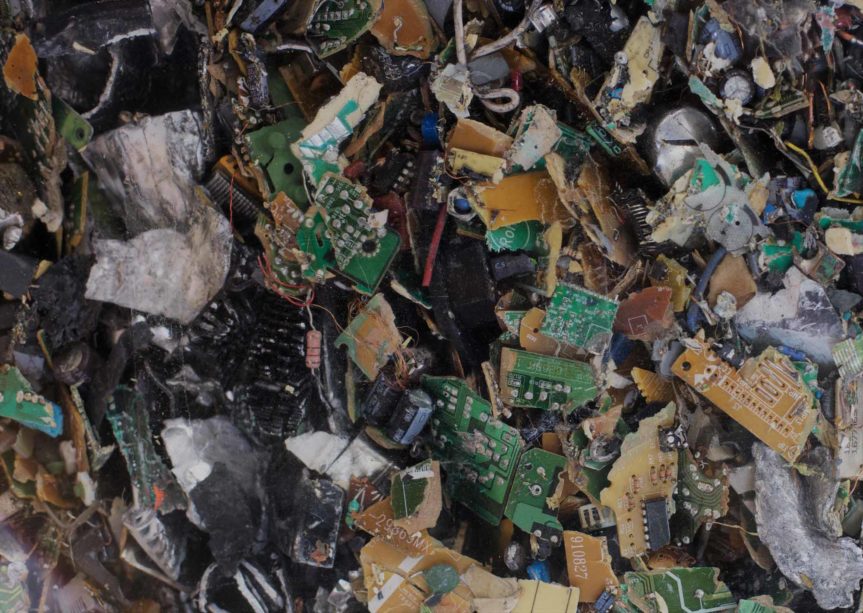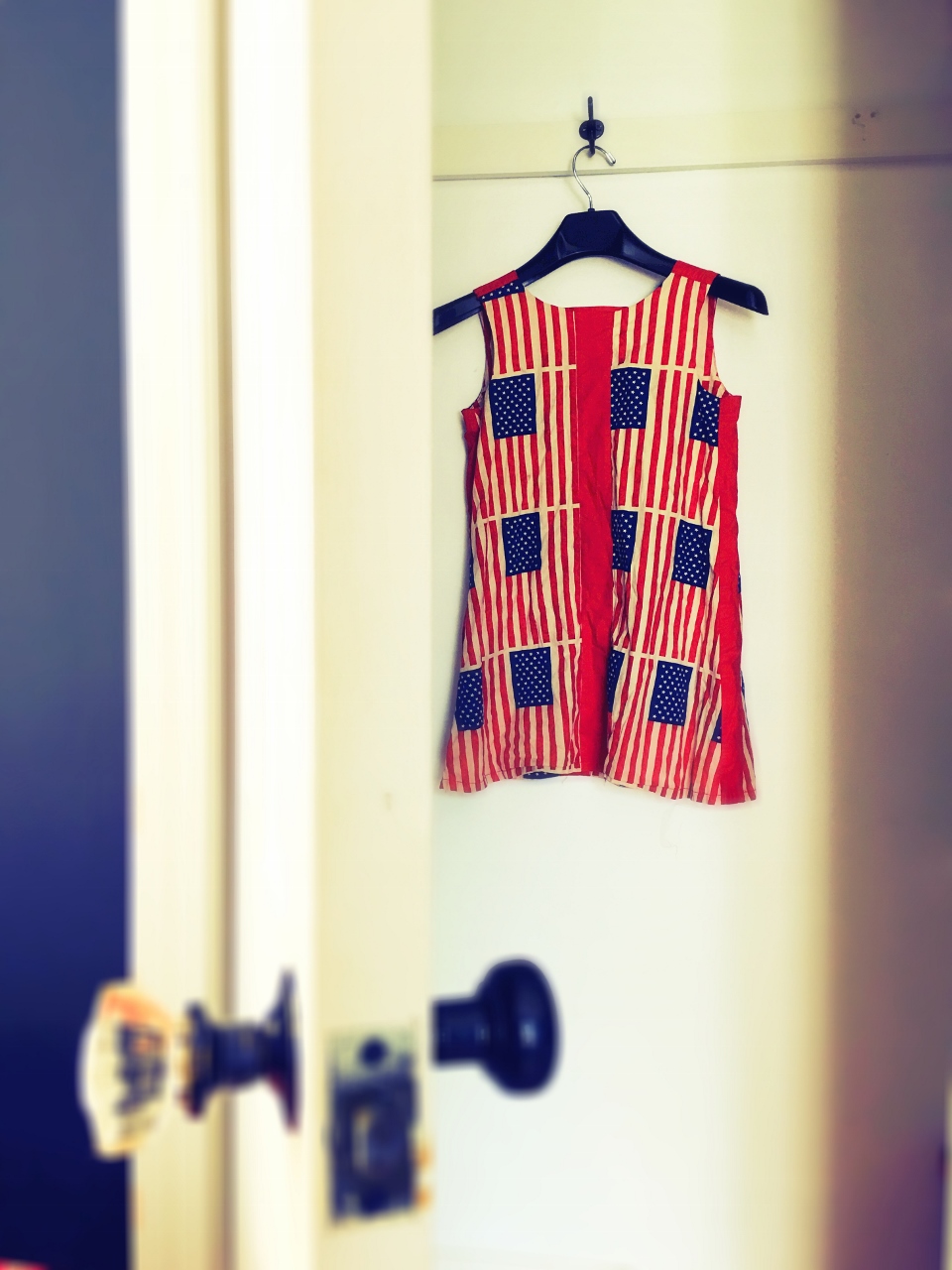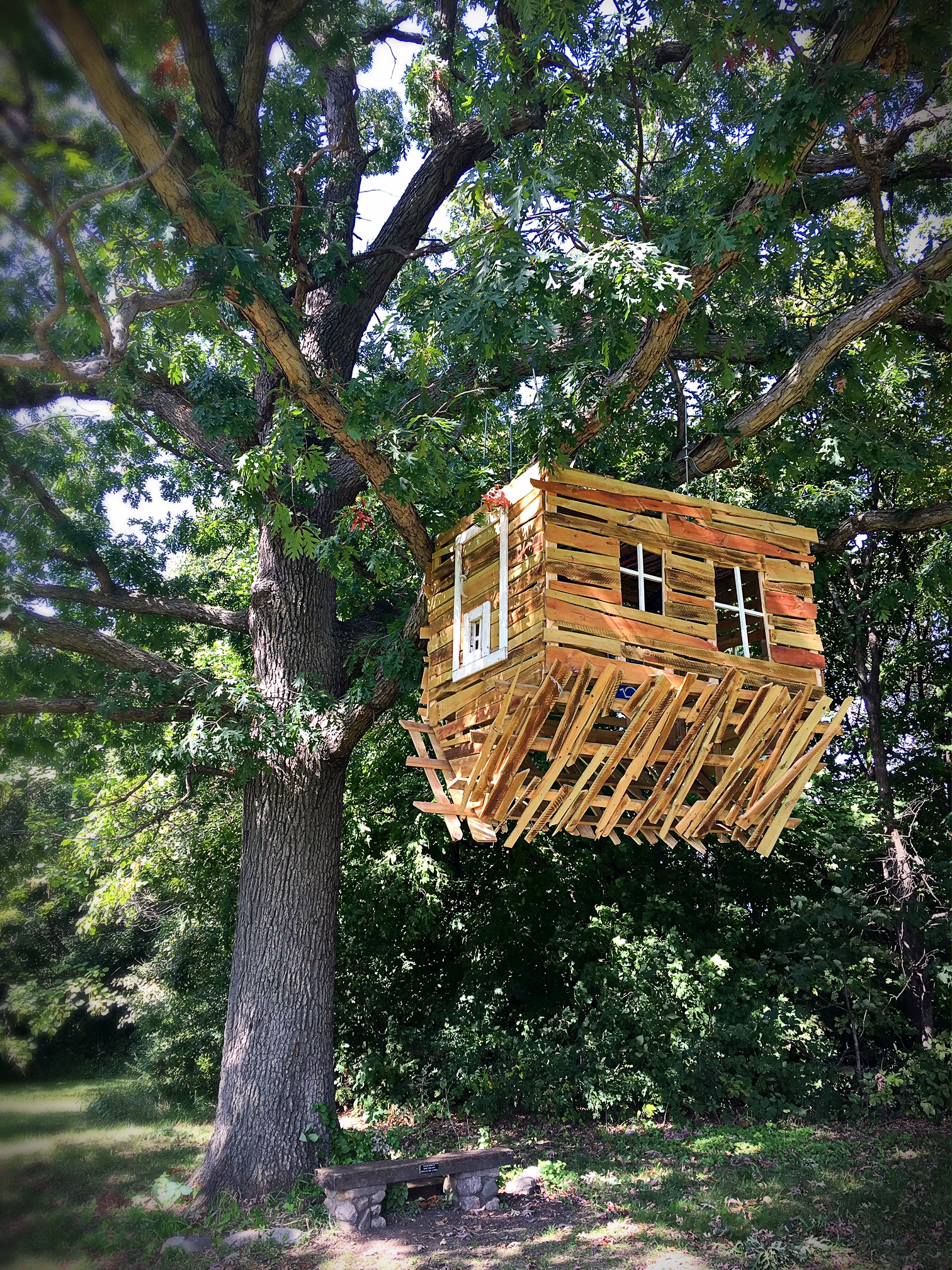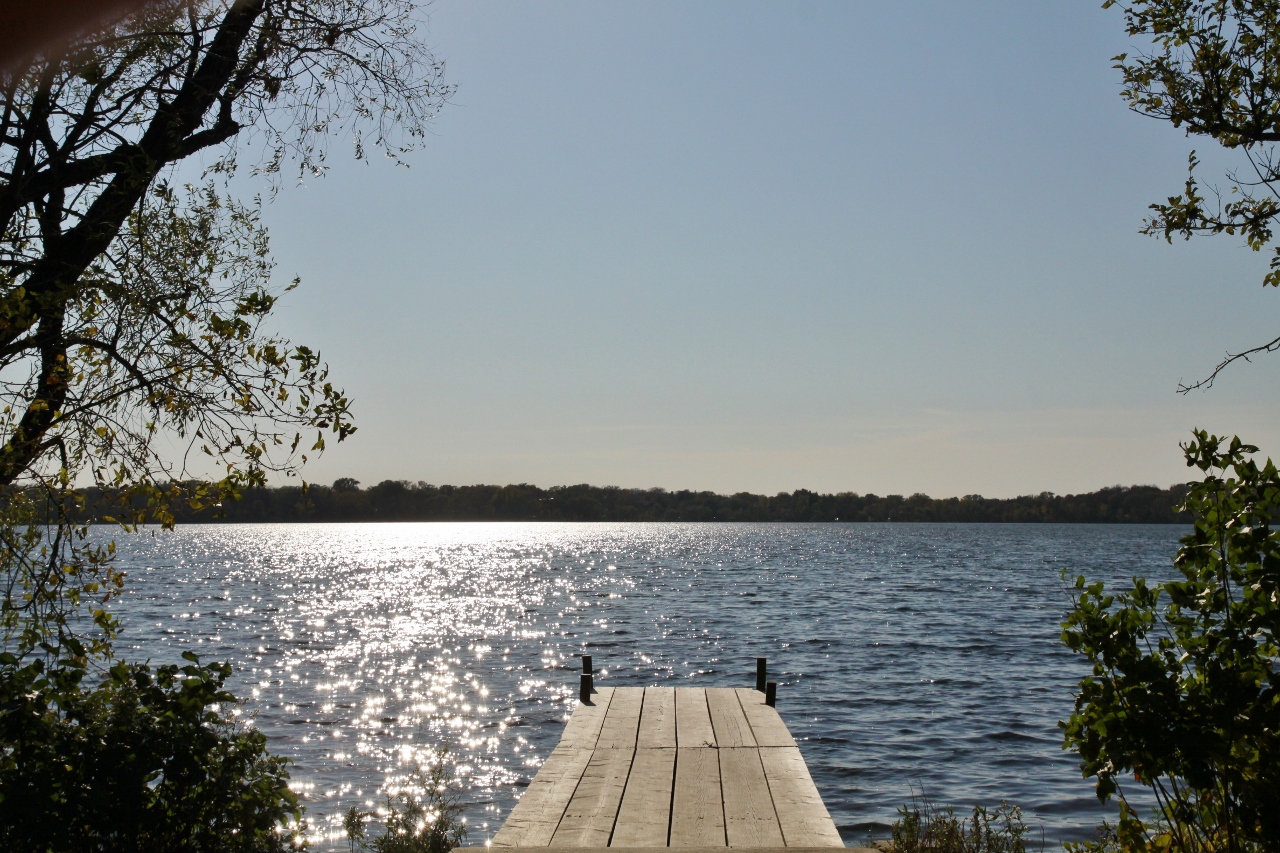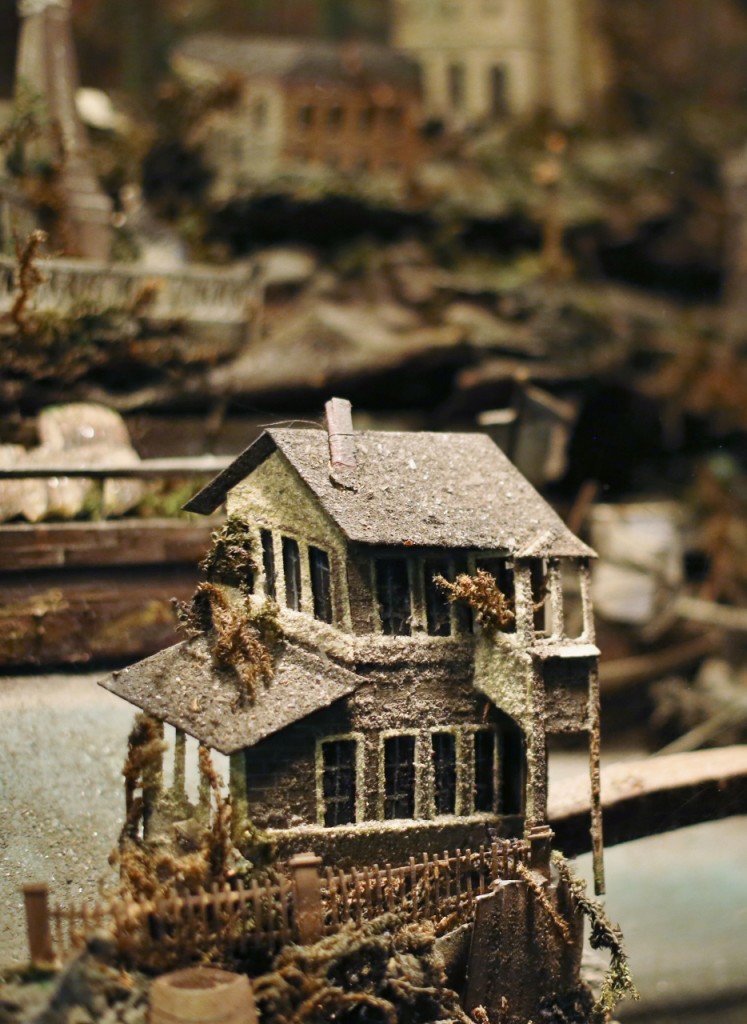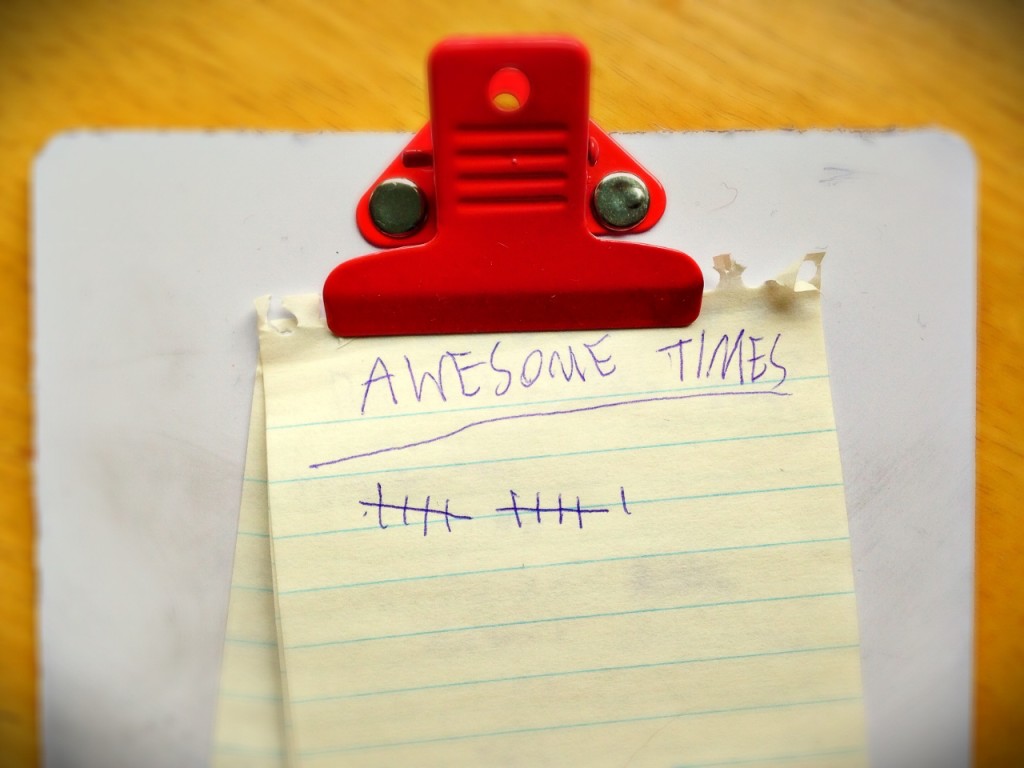Photo by Gina Easley
By Charlotte Gullick
2009
The last of my winter unemployment checks came today. Two hundred eight-three dollars. My husband, Dreux, worked one day this month, three last. It’s not his fault—the bed and breakfast where he cooks is newly opened and just not pulling in the customers. The harsh winter storm didn’t help, leaving the town without electricity for two days, us for four. The paying guests scheduled to come, didn’t. He could look for other employment, but his choices are limited: working with the developmentally disabled or busing tables. At the docks, the fishing boats come less and less often, the better catches are elsewhere. A year before, the lumber mill closed down: the last two-hundred fifty employees laid off. While the air above the town became clearer, the pall about its future did not.
I teach at the local community college—every week I am told that I’m lucky, that working there is one of the best possible places in this town of eight thousand. I am lucky—mostly because I have fabulous students and I like to explore the world with them through our English and Creative Writing classes. But, the full time, tenured instructors on that campus teach four classes a semester—I teach five and make a third of what they do. I have no retirement, no benefits, and no office. Rural community colleges across California are faced with an enrollment crisis. While urban two-year schools almost burst, small town colleges beg for students to attend each semester. It wasn’t until today, the second day of the spring semester, that I signed a contract for the term, but the contract isn’t binding: The college has two weeks to cancel classes, if the enrollment doesn’t hold.
I recently did an editing job for a timber faller. It’s a book about high climbers and the big trees—the redwoods that stagger with their height and impossibility. The work is a series of vignettes about what it’s like to work in the woods here. Or what it was like—those jobs are mostly gone. This logger/storyteller once said to me when he was dropping off pages, “This town used to have everything a working man needed. Now, it’s got everything he doesn’t: lattes, bistros, and yoga studios.”
It’s four in the morning and the buoy two miles away mourns its call through the chill air. The Mendocino Coast stuns with its rugged sweep of cliffs and moody, dangerous surf. In the spring, red tails ripple the headwinds while gray whales break the Pacific’s surface with puffs of air. Two miles away, redwoods stand in vibrant dignity.
The buoy sounds at ninety-second intervals, piercing the quiet and fog with an eerie regularity. For every third buoy keen, our neighbor’s cow answers, two pitches lower. Our daughter, Hope, sleeps between Dreux and me. She’s almost three, but after the accident, we’ve kept her with us, close, nested, sheltered. I hold her warm foot, listening to the back and forth of the buoy and the cow. I wonder if we need to move.
•••
When I was eight, my father bought sixty head of cattle that were delivered to the bottom of our dirt road, a half-mile from our rented house. He and my grandfather drove the frightened beasts, and I stood on our front porch, watching the cows herd together as they approached the open pasture gate. Once they stepped inside our fenced valley, they broke apart from each other, spilling over the land with a new earthiness I will never forget: dung and large bodies and damp friendliness.
That night, trying to sleep, the summer air was heavy with the smell and sound and shape of those animals: calls and shifting bulks and snorts. Next to me, my three siblings breathed deeply, each dreaming a separate world I would never know. The cows lowed to each other, filling the darkness with their sound, keeping me awake as I wondered whether Dad and Grandpa’s plan to make it in the cattle business would pan out. Dad’s smile had been so satisfied earlier that evening as he and Grandpa talked of the branding, ear marking, and worming that would need to be done. Maybe this time, they could make it work.
•••
Almost three months ago, my toddler daughter slipped on a tiled bathroom floor at the community college and did the splits. One second she was upright walking toward me, and in the next, she lay in an impossible puzzle. In that instant of impact and torque, her left femur broke in a spiral fracture. She whimpered like an injured puppy. My own heart hammering, I sat to comfort her. She wouldn’t put any weight on the leg and she cried in a horrifying new way, faint and breath half-caught. My stomach churned with the intuitive knowledge that her leg was broken. Bile gathered in my mouth, and my head swirled.
I interrupted the classroom nearby and a friend, an EMT, tried to gauge Hope’s injury. He was almost positive that she couldn’t have broken her leg because she hadn’t fallen, but alarm still fired through me. He had an ice pack in his car, which soothed Hope a bit. I took her home, and laid her on the couch. Even though I covered her with a blanket, she kept shivering. I finally understood: She’s going into shock. I bundled her up and whisked her to the hospital. When the nurse cut away Hope’s pants, the leg sat at a sickening angle, a hematoma building in the thigh. My body waved with shame because I hadn’t come to the ER immediately.
The rural hospital didn’t have anyone on staff capable of dealing with the injury. A quick call determined that the leading orthopedist in the county—thirty-three very curvy miles away, wouldn’t touch her. My two and a half-year-old daughter—this tiny, tiny person—would need to be flown, by helicopter, to Children’s Hospital in Oakland. A doctor eyed me and said, “You won’t be flying with her. She’ll need go into surgery immediately.” My husband was in San Francisco, attending a weekend graduate program for writing. I didn’t want to have to leave my daughter—she was so incredibly vulnerable. I didn’t want to watch the helicopter ascend without me holding her slight hand. Teary, I asked, “What are the risks of transport?” thinking she might die in flight and I wouldn’t be there. The nurse replied, “There are always risks in transport. But if she doesn’t go, she will be disabled for life.” She rushed away.
I tried to take a deep breath, tried to call my husband again on my dying cell phone. The nurse returned. “A helicopter is coming with an extra seat. Can you promise to sit on your hands the entire flight?”
I nodded then—and the five other times I was asked the same by other hospital staff and employees. Yes, I will not touch my daughter if you just let me go with her.
•••
In her sleep, Hope calls out to make it stop. I don’t know if she’s dreaming of the leg break pain; of the fear of being flown through the air in a metal, thumping, whirr; of the terror of not having control. I soothe her. The buoy sounds and the cow answers. Through the darkness, I stare at the ceiling. Two days ago, I called my sister and asked, “You live in the city, right?” I’ve been to her apartment in Brooklyn, the small one she shares with her husband and two cats; I’ve been to her work in Manhattan, followed her through the subway system.
“Yes,” she said slowly, as if maybe I’ve suddenly lost my intelligence, evidenced by stating the obvious.
“And you do okay, right?”
“Uh-huh.”
I paused. “I’m wondering if I can do it, you know, live in the city.” Where the tenured jobs are, where Dreux can find reliable and meaningful work, where we might have health benefits.
“You’ve lived in cities before.”
“Not with a kid.”
My sister remained silent.
I asked her, “Don’t you ever worry about something like Hurricane Katrina happening in New York?” No one on this planet understands like she does the deep fear our mother’s religion planted in us about apocalyptic events. “I mean, here, I know where to find fresh water. In the city, I’m not so sure.”
“I think about it all the time,” she said.
•••
The sixty percent body cast came off after six weeks, and Hope’s recovery is a delight to watch. She’s learning to walk, run, and dance. Yesterday she rode her tricycle down our country road and we stopped to look at the cows, see how their large nostrils expand as they breathe. They sniffed at us, and Hope smiled back. After she studied them, she tried to pedal backwards away from the fence and her leg wasn’t strong enough to do it, so I pulled the tricycle and set her on her course. Her little legs churned and she moved across the dirt, building her confidence again.
If Hope’s accident had happened a week later, we would have had no low-income coverage, and we would face a mountain of medical bills. The helicopter ride itself was over thirty-thousand dollars. My family and I are barely surviving. We have no savings, no investment in a home, no retirement, no inheritance, no access to career networks. What we have is a wealth of landscape, the smell of ocean air, the hush and lull of the sea. I have a graduate degree—shouldn’t I use the opportunity it might afford me to provide her with more stability than I had?
•••
Twelve years after the arrival of his cowboy dreams, my dad rounded up his remaining cattle in order to come up with the earnest money for the property I grew up on. In the moonlight, he herded those now rangy and wild beasts, and browbeat them to the corral. He got the money he needed and traded one dream for another: cowboy for landowner—first time in America for the Gullicks. He died at home fourteen years later, on the land he loved almost as much as his children, without medical care and without hospice. I know that part of his choice to die at home had to do with dignity and being in a familiar place, but a larger part of his decision concerned medical bills. Simply put, dying at home was less expensive. And already there was so much debt.
When he was twelve, his mother sent him north from East Los Angeles to remove him from the violence he was courting. He was “running” with the kids he looked like—Mexican Americans, other young people caught in the politics of identity and poverty we do so well in the United States. A knife fight happened at a dance, then someone’s mother was shot. My grandmother searched inside and decided he’d been safer in the country.
I think about that every day: a mother’s love so great as to send a son away. From the city where both opportunity and ruination circle an individual, depending on their resources and choices. My father fell in love with the landscape of Mendocino County, let that terrain take up residence inside of him as he took up residence upon it.
I love so much of my childhood: the stretch of time a quiet country day gives to a child’s imagination; the purr of bees flirting with apple blossoms; a creek slipping over mossy stones as it works its way to the wider world. I was given the gift of a deep relationship with the elements that sustain us: water, earth, gardens, orchards, clean air. But to offer my daughter the same requires a layer of cushion my husband and I don’t have. Like so many others, we are faced with the choice of country versus city. I feel that binary in my body, a pressing building. Strong enough to break bones.
•••
Dawn has begun to break, the darkness relieved of its burden as the sun creeps toward rising.
So much of me wishes that the beauty of this place was enough to sustain us. If we do move, will Hope remember her first five years filled with towering trees, the open possibility of sky and ocean? Will the landscape of her imagination have had enough time to make roots? I think about my father, rounding up one dream in order to pursue another.
The buoy has stopped, but the cow calls on, lowing a message I don’t yet know how to understand.
•••
CHARLOTTE GULLICK is a novelist, essayist, editor, educator, and Chair of the Creative Writing Department at Austin Community College. In May 2016, she graduated from the Institute of American Indian Arts with a MFA in Creative Nonfiction. Charlotte’s first novel, By Way of Water, was published by Blue Hen Books/Penguin Putnam, and her nonfiction has appeared in The Rumpus, Brevity, Pembroke, Pithead Chapel, and the LA Review. Her other awards include a Christopher Isherwood Fellowship for Fiction, a Colorado Council on the Arts Fellowship for Poetry, a MacDowell Colony Residency, a Ragdale Residency, as well as the Evergreen State College 2012 Teacher Excellence Award. For more information: charlottegullick.com

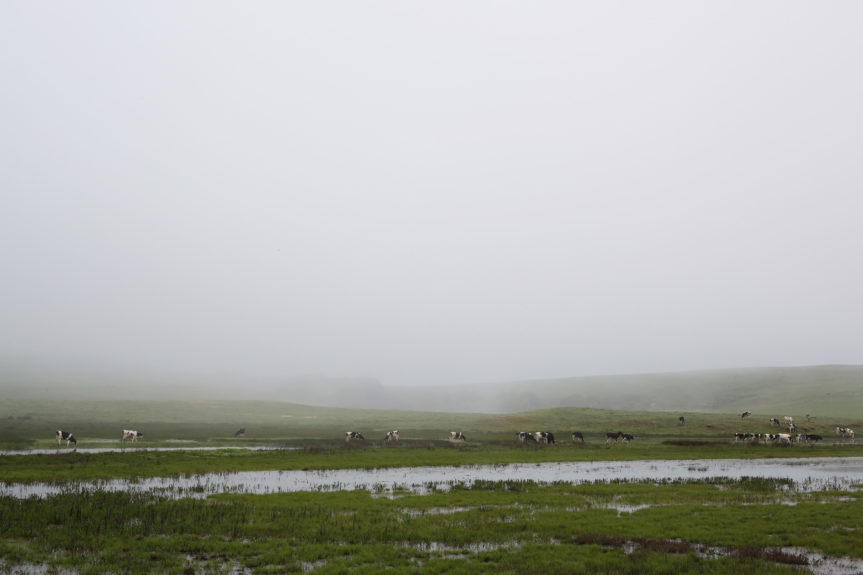
 Follow
Follow
